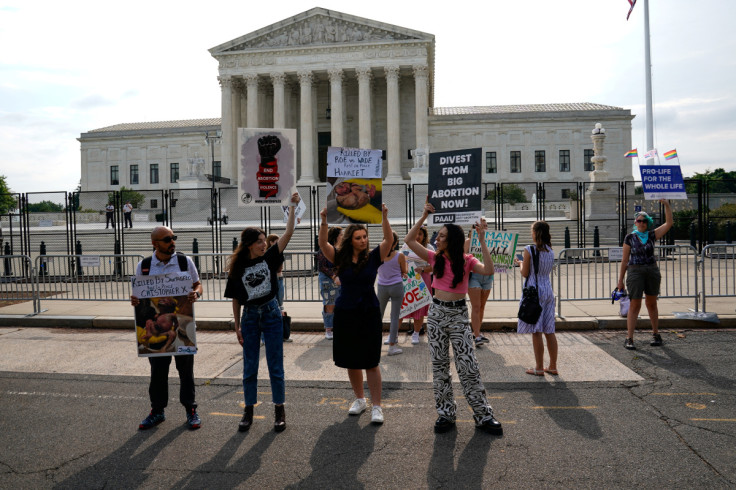
In the same way immigration enforcement is considered a winning political issue for Republicans, abortion rights can be one for Democrats.
This is especially the case as recent restrictive rulings in different states galvanize advocates who are seeking to help them tip the scale by including it on the ballot in November.
Latinos could play a large role in this, as some of the main electoral battles will take place in states where they represent a large percentage of the population, and figures show most of them oppose abortion bans.
According to a poll by Axios-Ipsos, this is the case for 68% of U.S. Latinos, and more prefer president Joe Biden on the issue (30%) compared to presumptive Republican candidate Donald Trump (21%).
Arizona and Florida are the most emblematic cases dominating the national conversation at the moment. The former ruled this week that the state can enforce a law that is over 150 years old and bans abortion in practically all cases, including rape and incest, the only exception being when the mother's life is in danger.
The law is so restrictive that Republican Senate candidate Kari Lake spoke against it. The statement illustrates the party's scrambling, as some try to make their stances more palatable to moderates and others double down on their beliefs about imposing nationwide bans.
Another example is former Vice President Mike Pence's criticism of Donald Trump for adopting the stance that abortion policy should be left to the states and for not outlining a clear position on whether the federal government should enforce a nationwide ban after a specific gestational period.
In a message on X, formerly Twitter, Pence said that Trump's stance was a "slap in the face" to the millions of pro-life Americans who voted for him in 2016 and 2020.
Florida's Supreme Court, in turn, rejected against halting the state's 15-week abortion ban, paving the way for the implementation of a statewide ban on most abortions after six weeks of pregnancy. However, at the same time it also cleared an effort to put the issue on the ballot in November.
Similarly, Arizona activists advocating for the inclusion of reproductive rights in the state constitution announced they surpassed the signature threshold required to place an amendment on abortion on the state's ballot in November.
There are a total of eleven states that are likely to take abortion rights measures on the ballot in November. Florida, Maryland and New York are confirmed, while the others vying for it are Arizona, Montana, South Dakota, Nebraska, Colorado, Nevada, Missouri and Arkansas.
© 2025 Latin Times. All rights reserved. Do not reproduce without permission.





